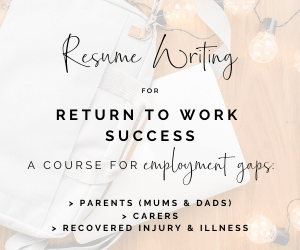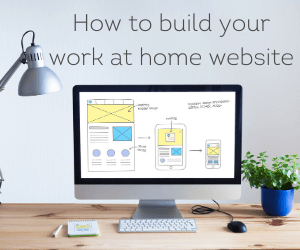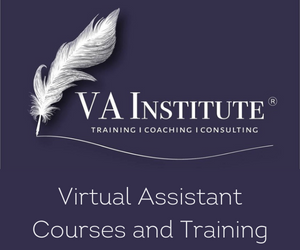A job search is almost always a formidable task – whether you are starting a career, looking for further advancement or returning to work after children. We all do it at one point or another – some of us seems to find it much easier than others. Once you’ve sorted out a fabulous resume, the next step is getting through the interview stage.
Some people find the hardest part of the job search process to be the interview phase. From hating being put on the spot and not knowing what to say, to being uncomfortable having to ‘sell’ yourself to potential employers. The key to a successful interview is to be calm and concentrate. If you’ve got to the interview stage the employer obviously thinks it’s worth finding out more about you.
Top 10 Interview tips:
- Make sure it’s at a convenient time. Don’t organise an interview at a time you’re going to be rushed around (like having an interview at 2pm when you need to pick your kids up from school at 3). You want to have your full mind in the interview and not watching the clock. If it’s a phone interview, make sure it’s a time where you know you’ll have peace and quiet to concentrate.
- Do your research.Most companies have websites or information online and a good look around will give you an idea of the company you’re being interview by.
- Ask for information about the interview. How will the interview be structured? Who is going to be interviewing you? Is there any specific information they would like clarified? The more you know, the better prepared you will be.
- Do a trial run.Visit the company ahead of time. Find out how long it will take you to get there so you’re not late on the day. Knowing where the interview will take place will save you the stress of finding it later.
- Plan your outfit. Even if you know the workplace is a casual place, you should still make an effort for the interview. Always ensure that your clothes are clean and well-maintained. You want a professional, well-groomed effect.
- Plan some answers.Think about the information that you really want to get across in the interview. Are there skills you want to highlight? Employers love examples of how you use your skills so think about some of your best moments in your jobs and get your stories ready.
- Practice at home.If it’s been a while since you’ve been to an interview, try some practice questions at home. You could even ask someone to role play as the employer.
- Deal with the work gap. If you’ve been out of the workforce for a few years due to children, it’s important to think about the things you have been doing. Highlight if you’ve done any study or courses during that time or any volunteer work you may have been doing (things like school canteen count for that too!)
- Don’t over-share family circumstances.You are being interviewed to see if your skills and experience match the advertised job. Interviewers aren’t actually allowed to ask you your age, if you have kids (or are planning to), whether you’re married or if you have a medical condition, but some will try to fish for that information anyway.
- Ask your own questions. Remember that the interview is also a chance for you to decide if you want to work for the organization in that role. You’re actually interviewing them as well! So go in with some questions you’d like to ask them as well.
Getting the most out of a phone interview
Getting past a telephone interview is a skill of its very own. And it is only when we are seeking a job that the skills of the phone interview are called upon. Let’s try and demystify what is trying to be achieved by the person conducting the phone interview and some hints to help you succeed.
Phone interviews are a way for employers to initially screen candidates for a position. The phone interviewer is trying to gauge your enthusiasm about the role they are advertising, so it is important that you are free to talk and are able to answer their questions openly and freely. If you find yourself in a situation where you are unable to talk let the interviewer know; they would rather delay the interview and get the best information from you, rather than muffled answers and responses that may come across as disinterest in the role.
As well as gauging your enthusiasm for the role the interviewer will also be trying to further establish your suitability for the role and the company. They will ask such things as clarifying items from your resume; your salary expectations; and when you will be available to start etc. Answer these questions accurately and truthfully. There is no point agreeing to a salary or start date you cannot make, or the employer cannot afford. It is better for everyone to know where they stand.

Key items and Skills for a successful Telephone Interview:
- Keep a smile in your voice
- Make Sure you are free to talk
- Answer as honestly and directly as you can
- Ask questions to show your interest in the role
- Thank the interviewer for their time
- Take notes so you remember the conversation
Your selling tools for you in the phone interview are your voice and the responses you supply. Make sure you are listening to the questions asked so you can respond appropriately. You don’t have the normal non-verbal cues to help you as you would in a face to face meeting so try and be clear and concise in your answers. Use formal language but be friendly.
If the phone interview has been scheduled in advance, make sure you are prepared by having researched the company beforehand and have read through the selection criteria and position description (if there is one) thoroughly. Match your skills and qualifications to the selection criteria so that you are confident you can explain why you are the person they are looking for. If you want some more pointers you can read about the importance of selection criteria. Also have a quick review of your own resume. The interviewer may want clarification of something, and it helps if the last time you looked at your resume wasn’t when you updated it at the beginning of your job search.
Prepare your answers for the most commonly asked questions, such as:
- Why did you / are you looking to leave your current job?
- What are you looking for in your next job?
- Why do you want the job?
- What are your strengths and weaknesses?
- What do you want from the role personally? (career advancement, growth, challenge etc)
- What interests you most about the job?
- What do you think you can bring to the job?
Just like in a face-to-face interview, you should be given the opportunity to ask questions of your own. This is a perfect opportunity to get clarification on any part of the role you are unsure of. You can ask about the job, team structure or if there’s any KPI’s to the position Asking questions lets the interviewer know you are taking the process seriously and are interested. If the interviewer doesn’t offer what the process will next entail (such as when you will hear about a face-to-face interview) then feel free to ask this yourself.
Like all interviews, role plays can help you improve, so practice with a friend or family member to increase your skill. Stage one of the interview processes is now complete and hopefully you will move to stage two at the end or shortly after the call. Remember that the phone interview offers the interviewer the opportunity to assess you, as well as giving you an opportunity to review the role and company you applied to.
Tips for a face to face job interview
If you’re scored a face to face interview, then rejoice! There’s obviously something in you that the employer sees will be a good fit for the company and role. Now it’s time to knuckle down and get prepared so you can go in with maximum confidence that you are the one for them.
Spend some time researching the company. Look up their website as a starting point, but you can also google them and see what else comes up. They may have been featured in articles or even just look at their social media or LinkedIn to get a feel for what sort of company they are and the values they hold. If you know who is going to be interviewing you, you may be able to find out some information about them and their role as well.
You should have been told where and when the interview will take place. If possible, go there a few days before your interview to find out where you’re going and gauge how long it will take you to get there, reducing your stress on the day. Suss out the parking situation and see if you will need to allow any extra time. Plan the outfit you are going to wear so you’re not trying to make a decision just before you need to leave and remember it’s better to be a bit overdressed than under dressed.
Ask for some information about the interview such as how is the interview structured, is there going to be more than one interviewer and would they like you to bring anything (such as proof of education etc). This allows you to prepare better in your mind for what you are facing. Plan your answers to come common questions and even write down some notes of information you don’t want to forget on the day. Practice at home, even ask friends and family to help role play an interview with you.

Tips for during the interview:
- First impressions count. Research from Princeton University shows people are hard-wired to make snap judgments. So make sure you’re on time, looking professional.
- Make sure to use positive body language. Make eye contact and try not to fold your arms.
- Listen to the interviews questions carefully so you can respond to what is being asked.
- Be confident in your response to questions and make sure you take a few seconds to think about what you are going to say before responding.
- Give examples of your experiences. It’s not enough to say you’ve got a skill; you need to show how you’ve used it in a past role.
- Use emotions and empathy. You want the interviewer to relate personally to what you are saying. You can do this by including empathy and emotion.
- They want you for something. We often forget that they are the ones that contacted us and it was not the other way around. Something on your resume probably stood out and so they decided to shortlist you as one of the potential candidates. You can ask them what on your resume made you stand out from the rest.
- Don’t share personal information. The interview is for assessing whether your skills and experience match those required for the role, not an anecdote about your favourite cat or your family circumstances.
- Ask questions yourself. You need to find out information about the role as well, whether the organisation is one you can fit into, and if the role is something you are confident you can do and be happy in.
- Ask them questions about the type of projects you will be working on if you come there and if they saw you somewhere else before this. Also inquire about the organizational culture in the office, how they were able to adapt to new industry regulations, and more along the lines of that.
- Be yourself and try not to overthink things. It’s an interview to see if you and the employer fit together, not a trial.
When answering questions use a simple structure. A three part structure can keep you focused.
“I am……” [describe the role, or the role you would like to perform]
“I work with……” [tell the interviewer whom you support and why they need your support – use this statement to show you understand why people might need your help]
“In fact……” [provide a quantifiable achievement to support your claim and allow the interviewer to understand what you can do for them. This statement needs to be relevant to the role]
If I was pitching myself as a career consultant I would structure my answer like this:
Q: Tell me about yourself?
A: I am a Career Consultant. [my role]
I work with people who often struggle to sell themselves in interview as they don’t know what makes them unique. [this shows whom I support and demonstrates empathy. I also show that I understand why people need my support]
In fact, over the past five years I have personally helped over 1000 people find their next job. [this is quantifiable achievement that supports my claim and allows the interviewer to understand what I can do for them]
Before you go into an interview and use this structure do 3 things. (It’s OK this is easy)
1) Put yourself in the mind of your future employer. What are they trying to achieve, now and in the future? Who are their clients? Who do they work with?
This information is easily accessible online. Think LinkedIn and the like. Focus just as much on what they’ve done in the past, as where you think they might be heading in the future.
2) Think about yourself. What do you want to do? What skills do you love to use? For ideas think long and hard about what’s made your face light up when you’ve spoken about it. Or think about what you could do every day without people paying you.
3) Think about the impact you could have with that employer in the future.
This does not need to be complicated. But you do need to understand what that company does and where it’s heading.
Now I know this is all theoretical, so here is a structure that works.
If you’ve just completed some training – and loved it, you could say this.
I have just completed [state what you have done]
I’d like to work with [state what you would like to do and the benefits it may have to your employer]
In the future, I’d really like the challenge [state the future impact you’d like to have with that employer]
Here’s an example that you could apply to just about any role.
I have just upgraded my skills in MYOB and found that I loved it.
So, I’d like to work with a team that need help getting their day to day accounts in order, but just don’t have time to focus on this.
In the long term I’d really like the challenge of developing processes that take advantage of future technology and position a company for financial security.
If you show that you have done your research on the company, and tailor this to the main task of the role – you have an easy answer for “why do you want this role?” “tell me about yourself,” “what do you do?”
Keep your answers reasonably short and try not to waffle. You don’t have hours to win over the interviewer.
Once the interview is over, it’s a nice practice to thank the interview for their time. If you have their email, send them a quick note to follow up and say thanks. If you don’t end up getting the job, ask for feedback to help you understand why your were unsuccessful and prepare for your next one. You might ask if there was something about you the interviewer was impressed with, and likewise anything you need to improve on.
The most important thing with interviews is to be confident in your ability to fulfil the role you are being interviewed for. Don’t let nerves get the better of you. If you do start to feel like a deer in headlights, take a few seconds to breathe and refocus.
You’ve got this.






